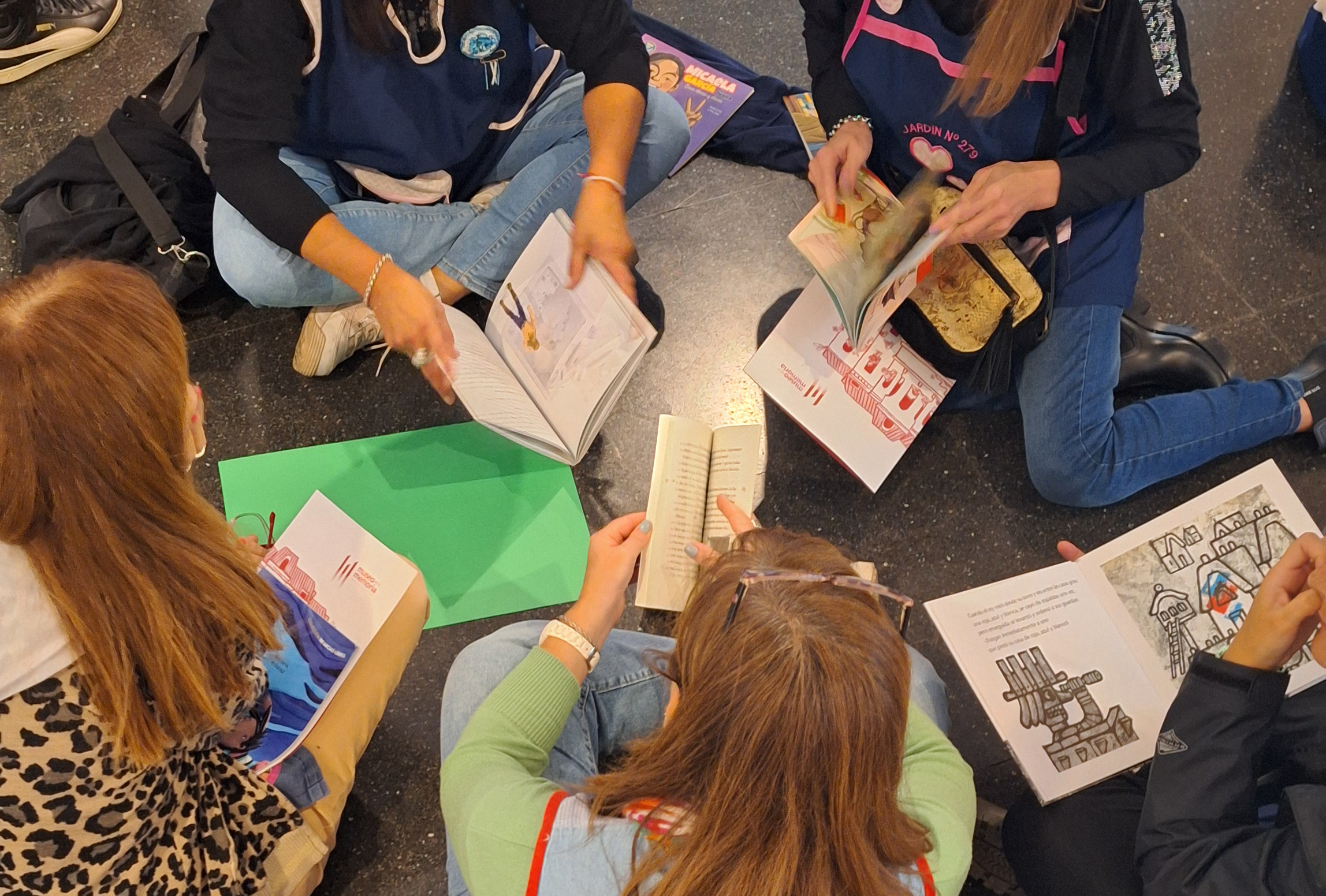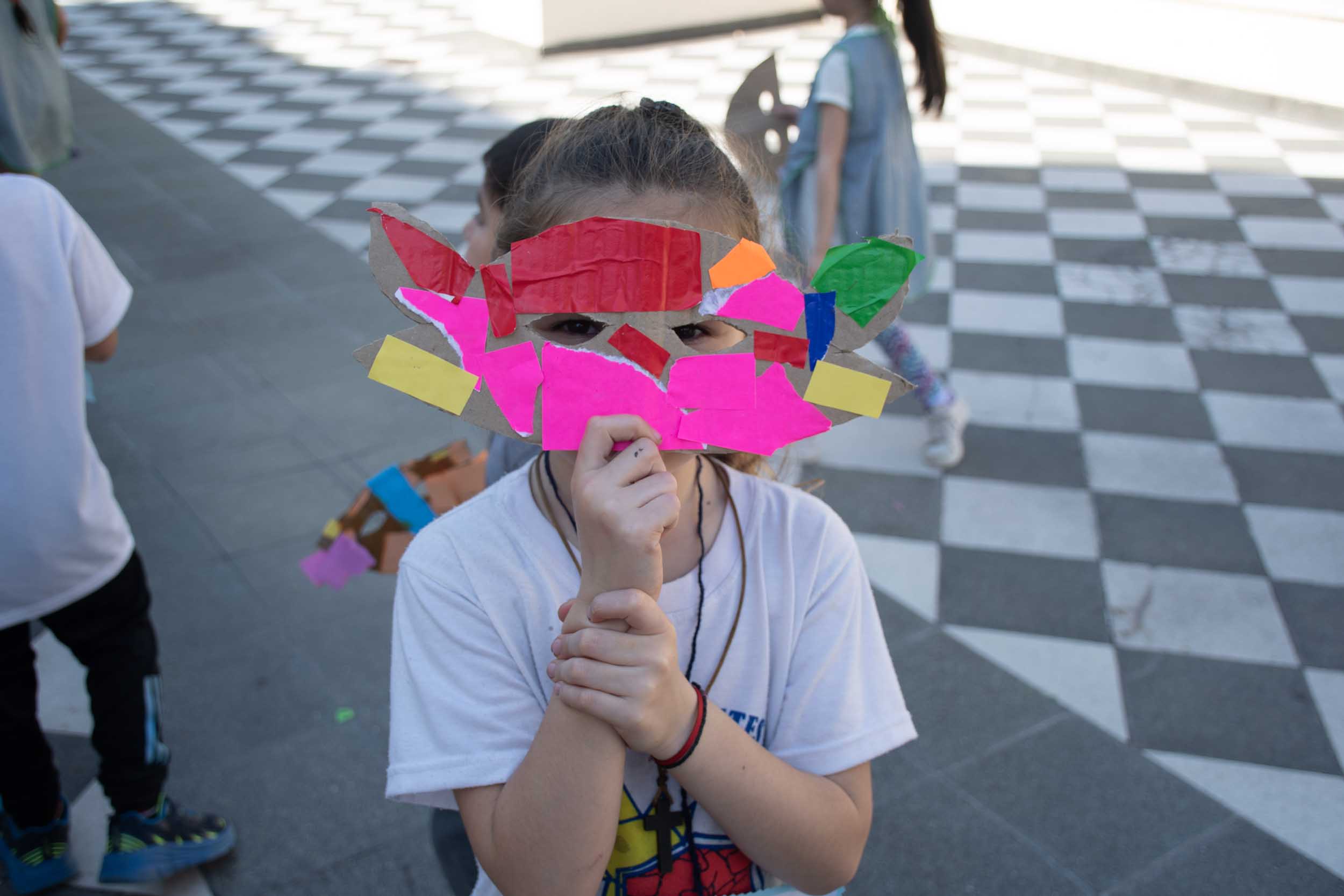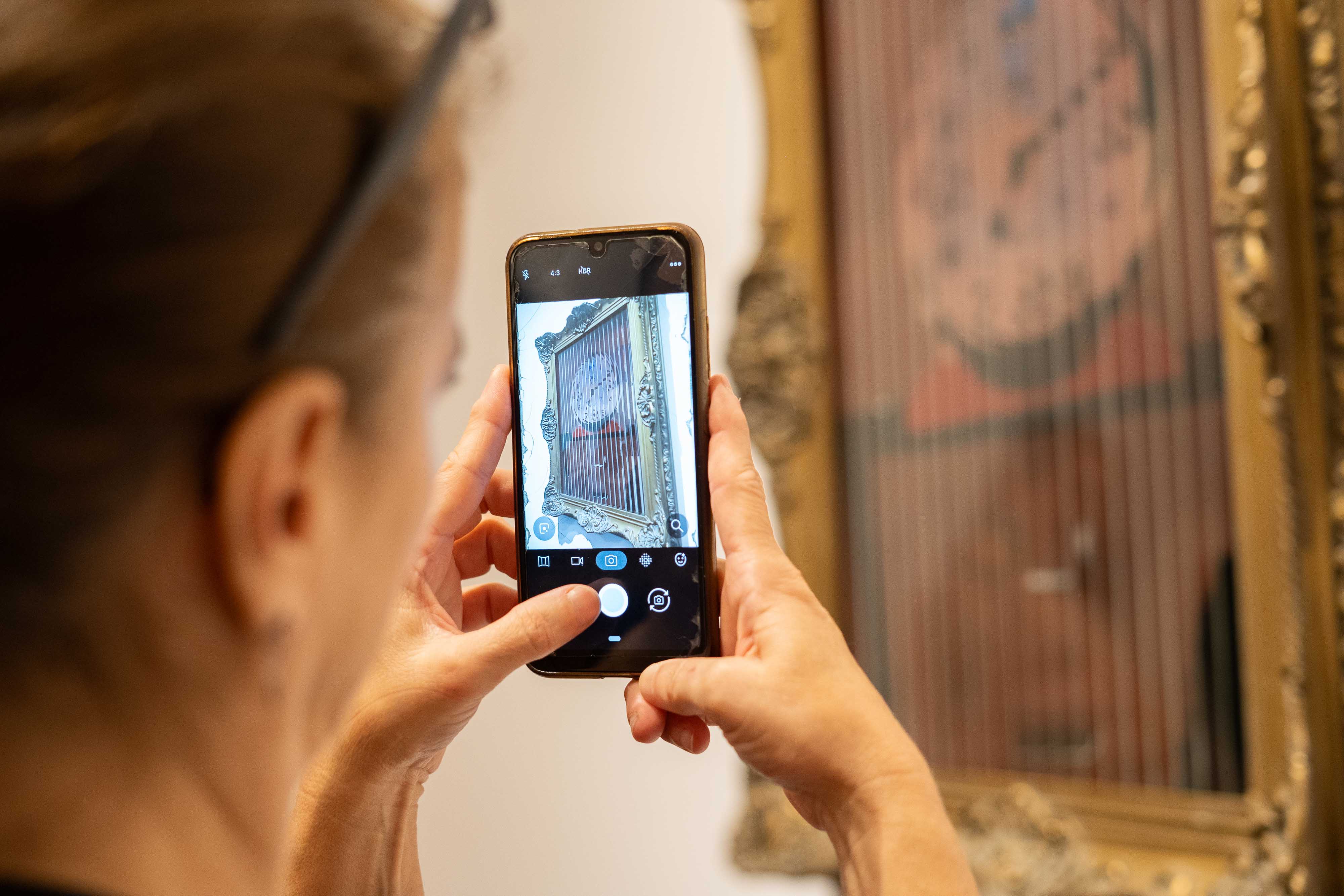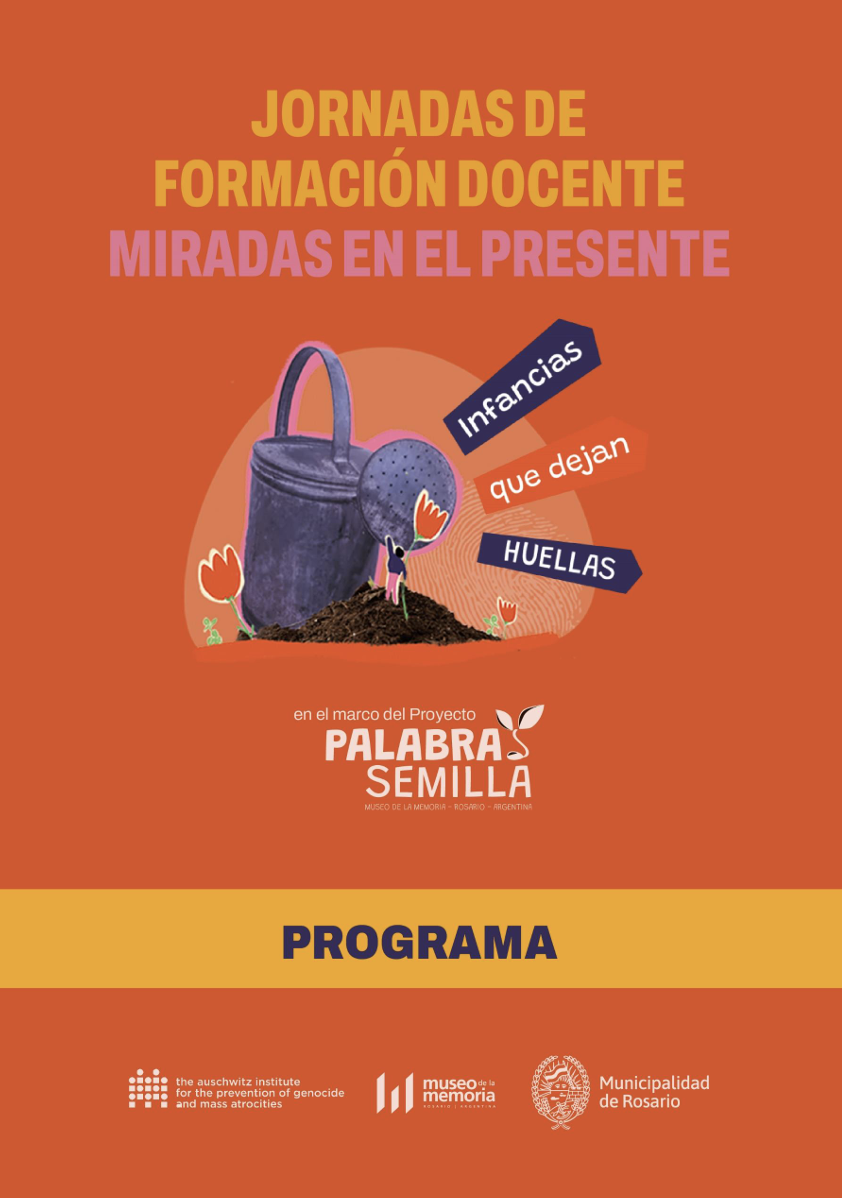To make a secure online donation, please click the button below


By Eugenia Carbone – Director of the Latin American Program (LAP)
Amid a time marked by challenges, we feel the need to reflect once again on how to protect one of the most precious values we share as a society: democracy. Along with it, coexistence, human rights, and the institutions that, through effort and perseverance, the Argentine people have managed to rebuild.
We stand at the threshold of a symbolic anniversary: 50 years since March 24, 1976, the day when democracy, rights, and the legitimacy of the very institutions created to uphold them were taken from us. As a reparative act, 2025 finds the AIPG's Latin America Program working and thinking collectively about how to preserve memory and continue building greater truth and justice.

The path we have chosen rises to meet the challenges of our present time. We chose to include children and young people in these dialogues. It is not only about transmitting information about the atrocities of our recent past, nor merely about showing images or recounting stories of terror. The challenge runs wider: it is about engaging our children in understanding what we are protecting as a society and what we must never lose again.
This invitation encourages us to reflect on what we lost in 1976, what we regained from 1983 onwards, and what still lies ahead. Involving children in these conversations opens up the opportunity to listen to their thoughts, their dreams, and their contributions to the country that awaits them and all of us.
How can we support them in becoming protagonists in the pursuit of equal rights and respect for diversity?
How do we accompany them in their concern for the environment?
How do we encourage them to know and defend their rights?
How do we create spaces where they can truly breathe freedom, including in the digital world?

All these questions became the driving force behind the work we developed together with the Museo de la Memoria de Rosario. The museum's decision to create a dedicated area for children was the starting point. Formed by an interdisciplinary team and integrated into the education department, this initiative gave rise to the project Palabras Semilla: Childhoods that Leave Traces, a comprehensive plan of pedagogical, artistic, and recreational activities designed for and with children.
Palabras Semilla brought together workshops, guided tours, and theatrical visits, created primarily for children but also engaging teachers, school directors, and families in Rosario's educational community.
The project culminated in a powerful challenge: to leave all that work permanently reflected in the museum itself. Thus was born the Sala Encuentros (Encounters Hall), a space dedicated to children, featuring works by Lucrecia Lionti, Soledad Sánchez Godar, Florencia Garat, and Marcelo Brodsky, curated by Cecilia Nisembaum. The Sala Encuentros contributes to the museum's identity as an emotional and reflective space—a resonant chamber for Memory, Truth, and Justice from the earliest ages.

Taking part in shaping the present and future of our children also means passing on the best of what our generation has built. Over more than 40 years, Argentina has forged a community of activists, advocates, and human rights organizations that have never given up, not even in the most difficult times, including the ones we face today.
In this spirit, in April 2025, Palabras Semilla brought together representatives from memory spaces and human rights organizations from across the country to reflect and project our work into the future. From that dialogue emerged a clear conviction: working with and for children must be one of the central pillars of the human rights movement.
I write these lines just days after attending the 48th anniversary of Abuelas de Plaza de Mayo (Grandmothers of Plaza de Mayo), feeling the collective embrace that surrounded the Abuelas and hearing Estela speak tenderly of "our children"—the 139 grandsons and granddaughters who have recovered their identities thanks to their tireless struggle, and the more than 300 who are still waiting to find theirs. Still moved by these gestures of unconditional love for their grandchildren, their children, and our entire society, I reaffirm that Palabras Semilla is but one expression of AIPG's unwavering commitment to memory, truth, justice, and democracy.
Buenos Aires, November 2025.

Por Eugenia Carbone – Directora del Programa para América Latina (LAP)
En medio de una época atravesada por desafíos, sentimos la necesidad de volver a pensar cómo cuidar uno de los bienes más valiosos que tenemos como sociedad: la democracia. Con ella, la convivencia, los derechos y las instituciones que, con altibajos y mucho esfuerzo, la sociedad argentina logró reconstruir.
Estamos a las puertas de un aniversario emblemático: los 50 años del 24 de marzo de 1976, el día en que nos arrebataron la democracia, los derechos y la legitimidad de las instituciones destinadas a garantizarlos. Como efecto reparador, este 2025 encuentra al Programa para América Latina de AIPG trabajando y pensando colectivamente cómo preservar la Memoria y seguir construyendo más Verdad y más Justicia.

El camino que elegimos está a la altura de los desafíos que la actualidad nos plantea. Decidimos incluir a las infancias en estos diálogos. No se trata solo de transmitir información sobre las atrocidades del pasado reciente, ni de mostrar imágenes o relatos del terror. El desafío es más amplio: integrar a nuestras infancias para pensar qué es lo que estamos cuidando como sociedad y qué es lo que nunca más debemos perder.
Es una invitación a pensar en aquello que perdimos en 1976, lo que conseguimos a partir de 1983 y lo que tenemos por delante. Involucrar a las infancias en estos diálogos abre la oportunidad de escuchar qué piensan, qué sueñan y qué pueden aportar al país que les/nos espera.
¿Cómo ayudarles a ser protagonistas en la búsqueda de la igualdad de derechos y del respeto a las diversidades?
¿Cómo acompañarles en sus preocupaciones por el ambiente?
¿Cómo promover que conozcan sus derechos y aprendan a defenderlos?
¿Cómo crear espacios donde realmente puedan respirar libertad, incluyendo el entorno digital?

Todas estas preguntas fueron el motor del trabajo que desarrollamos junto al Museo de la Memoria de Rosario. La decisión del museo de crear un área dedicada a las infancias fue el punto de partida. Conformada por un equipo interdisciplinario e integrada al área de educación, esta nueva iniciativa dio lugar al proyecto Palabras Semilla. Infancias que dejan huellas, y a un plan de trabajo con propuestas pedagógicas, artísticas y recreativas dirigido a las infancias.
En Palabras Semilla confluyeron talleres, visitas guiadas y teatralizadas, pensados para las infancias, pero que también interpelan e incluyen a los adultxs docentes, directivxs, madres, padres de las escuelas de Rosario.
El proyecto previó también dejar todo ese trabajo plasmado en el propio museo. Así nació la Sala Encuentros, un espacio dedicado a las infancias, con obras de Lucrecia Lionti, Soledad Sánchez Godar, Florencia Garat y Marcelo Brodsky y curaduría de Cecilia Nisembaum. La Sala Encuentros aporta a la identidad del museo como una caja de resonancia afectiva por Memoria, Verdad y Justicia desde las edades más tempranas.

Hacernos parte de la construcción del presente y del futuro de nuestras infancias también implica transmitir lo mejor que nuestra generación ha construido. En estos más de 40 años, Argentina consolidó una comunidad de activistas, militantes y organismos de derechos humanos que nunca bajaron los brazos, ni siquiera en los momentos más difíciles, incluyendo los que atravesamos hoy.
En ese marco, en abril de 2025, Palabras Semilla reunió a referentes de espacios de memoria y organismos de derechos humanos de todo el país para reflexionar y proyectar el trabajo hacia el futuro. De ese encuentro surgió una certeza: trabajar con y para las infancias debe ser uno de los ejes centrales del movimiento de derechos humanos.
Termino estas líneas pocos días después de haber participado en el 48° aniversario de Abuelas de Plaza de Mayo, de haber sentido el abrazo que rodeó a las Abuelas y de haber escuchado a Estela hablar con ternura de “nuestros chicos”: los 139 nietos y nietas que recuperaron su identidad gracias a su lucha incansable, y los más de 300 que aún esperan encontrar la suya. Todavía conmovida por esas muestras de amor incondicional de las Abuelas a lxs nietxs, a lxs hijxs y a toda la sociedad, reafirmo que Palabras Semilla es solo una manifestación del compromiso irrenunciable de AIPG con Memoria, la Verdad, la Justicia y la Democracia.
Buenos Aires, noviembre de 2025.
